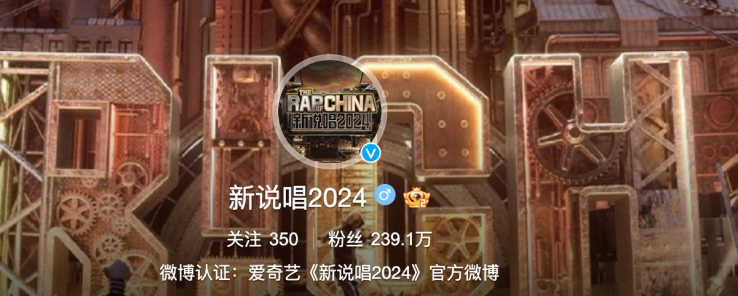The News
A Chinese internet rapper who posted about being made to take a urine test before appearing on the popular reality TV show The Rap of China has sparked a nationwide conversation over the expectations for celebrities to be squeaky-clean, model citizens.
After 3Bangz filmed his experience of being handed the test for so-called “health reasons” ahead of his audition, “The Rap of China Urine Test” immediately began trending on social media app Weibo, with posts on the topic getting over 19 million views.
Most Weibo users found the incident humorous — if a bit excessive — with one describing it as “absurd but reasonable.” Some more nationalist social media accounts even commended the show’s producers for “respecting” the expectations of fans.
It highlights the fine line that celebrities must tread in China where every aspect of their appearance, personal lives and even song lyrics are subject to intense scrutiny and any conduct perceived as running afoul of government norms risks career cancellation.
The rapper later posted of his anxiety and regret about starting a viral conversation, Nikkei Asia reported, fearing it could lead his appearance on the show to be canceled.
Beijing attempts to use its strict zero-tolerance approach to drugs to frame the country as a safer society, more orderly society compared to Western countries with more liberal drug laws.
SIGNALS
Chinese celebrities strictly vetted to uphold national image
With the Chinese government insistent that public figures maintain a sterile image, just one scandal — from drug use to tax offenses or sexual misconduct — can be grounds for an entire TV production to be scrapped. In addition to the urine tests, authorities reportedly also vetted the social media of each Rap of China competitor to “ensure that each contestant has good character,” according to Entertainment Circle, a Chinese entertainment news site. It follows a furore in 2018 over a previous winner’s alleged affair with a married celebrity. The scrutiny shows the extent “of being famous or working with celebrities in today’s China,” according to Nikkei Asia: Beijing has strict rules on TV appearances, including banning celebrities from showing tattoos and banning effeminate “sissy men” from TV. Even apparently non-controversial celebrities have come in for censorship. In 2021 the work and social media accounts of award-winning actress Zhao Wei disappeared from the Chinese internet leading to suggestions her level of influence had led her run afoul of the government. One China watcher told NPR shows the extent of Beijing’s intensifying crackdown on individuals “who have both economic and social power to guide opinion or to raise capital independently” and could thereby threaten one-party rule.
Foreigners in China risk falling foul of strict drugs laws
The U.S. State Department in 2023 advised Americans to reconsider travel in China because of the risk of wrongful detention, including being subjected to random drug tests once in the country. China’s hypervigilance around drugs — particularly over cannabis amid moves to legalize the drug in the West — has fueled the Communist Party’s largely xenophobic narrative of “an unruly and predatory world that exists exclusively outside China’s borders, and from which its citizens must be constantly sheltered,” Foreign Policy wrote in 2019. “Any imagined immunity [for foreigners] no longer exists,” it wrote. China’s nightlife scene has in the past been marred by police demanding foreigners take drug tests before leaving bars, or clubs being abruptly shut down, the magazine reported.
Celebrities in South Korea hounded by anti-drugs culture
The death by suicide of South Korean Parasite star Lee Sun-kyun in Dcember came after police launched an investigation into his reported drug use and sparked a national conversation over the unrealistic standards celebrities are held to in the country. Lee’s death ignited “anger over the relentless public glare” and societal expectations that Korean celebrities must meet, the BBC said. In a highly digitalized society, the public was hungry for updates on Lee’s scandal, incentivizing media organizations to publish private conversations that exposed more of his personal struggles. “He didn’t die because of drugs, he died because of the humiliation other people gave him,” one social media user posted about his death, the BBC reported. Kwon Ji-yong — better known as G-Dragon, the frontman of the K-Pop boy band BigBang — has also for years been the subject of police investigations over alleged drug use, most recently appearing before investigators in November as part of conservative President Yoon Suk Yeol’s crackdown on drug use.



